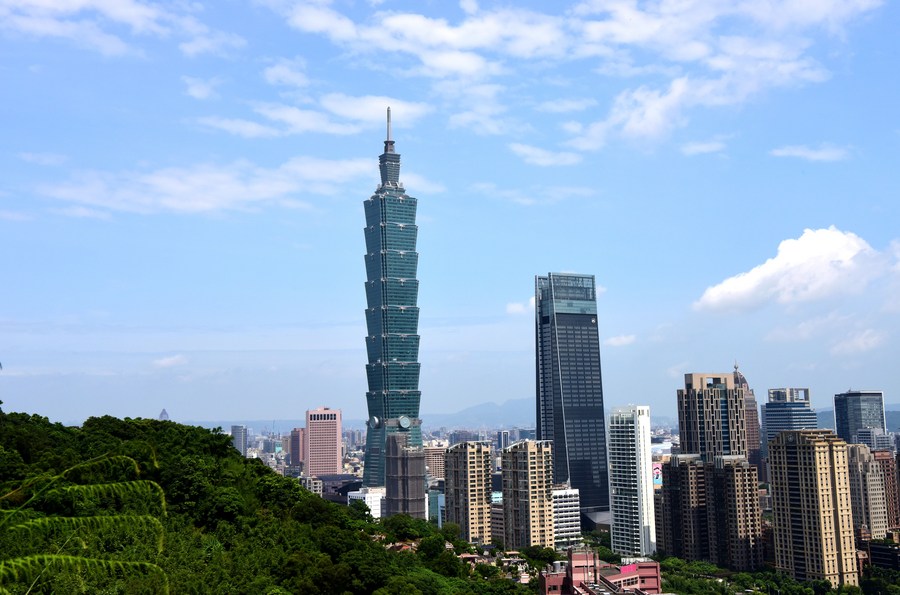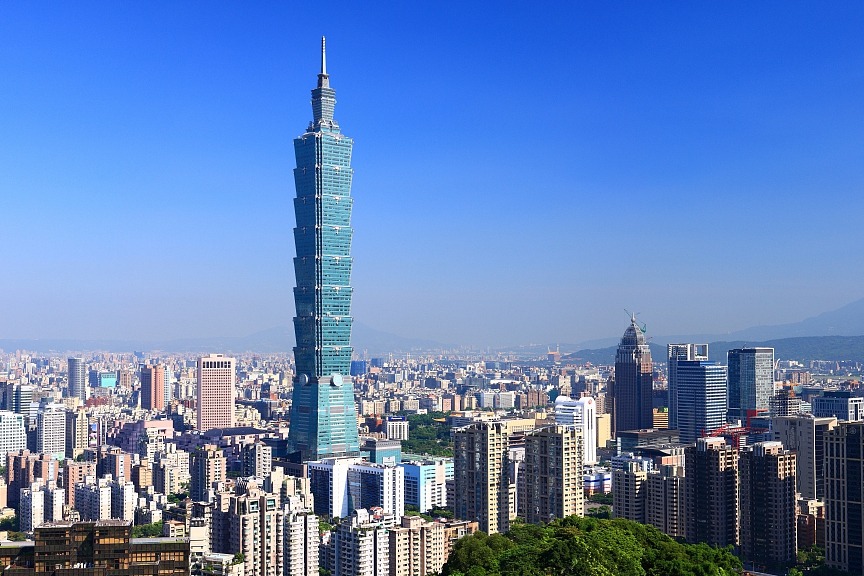Could Taiwan gain anything from Pompeo's visit?


The former US secretary of State Mike Pompeo and his wife arrived in China's Taiwan region on Wednesday for a four-day visit at the invitation of the Prospect Foundation, a Taipei-based think tank. Pompeo is expected to deliver a speech during an event held by the think tank on March 4. But Pompeo may have some more political objectives for his visit if one takes the following factors into account.
Pompeo's itinerary suggests the visit comes with strong political overtones. As the website of the Democratic Progressive Party (DPP) authorities' external affairs department reveals, Pompeo will meet not only with representatives from business and academic circles but also with local senior officials, including the regional leaders Tsai Ing-wen and Lai Ching-te as well as heads of "legislative" and external affairs departments. Such a rarely-seen high-level reception arrangements indicate the political purposes of both Pompeo and the Taiwan authorities.
Besides, the DPP authorities have been running a high-profile campaign for the former official's visit. Some Taiwan local officials spoke highly of Pompeo's "significant contributions" to promoting Taiwan's connections with the US during his tenure as Secretary of State. They are now touting Pompeo's visit as a "crucial signal" that the US support for Taiwan is bipartisan. By doing this, the Taiwan authorities are encouraging the former US senior official to play a "due role" for Taiwan's good in future.
Indeed, as one of Trump administration's leading hawkish politicians, Pompeo had pushed for extreme anti-China policy measures. He assisted the Trump administration to play the Taiwan issue as a so-called "strategic card" to the maximum. The US has announced to sell Taiwan advanced weapons with a total value more than $18 billion. The State Department also declassified some documents that were conducive to improving the connections with Taiwan.
In a word, Pompeo is pursuing his own political gains in the name of paying a visit for academic exchange to the island.
In the context of the current strategic competition between China and the US, an anti-Chinese mainland and pro-Taiwan image helps Pompeo to gain more political assets. Such an image would first put him in the limelight of American political circle. Now the vast majority of the opposition Republican Party shares a consensus on anti-China policy. An anti-China posture seems to be essential for Pompeo, who is believed to run for president in 2024 or some near future. His visit could score brownie points at least during the presidential nomination process.
Apart from that, a pro-Taiwan image would for sure attract more money from the DPP authorities and some DPP-identified enterprises. These resources "returned" by the Taiwan authorities are crucial for Pompeo particularly once he's set to join US presidential race.
That being said, Pompeo's Taiwan visit could also be used by the Tsai Ing-wen authorities.
First, the visit has, in the eyes of the DPP authorities, been touted as US "rock-solid" commitment to the island. The Tsai authorities' attempts to deter the Chinese mainland by colluding with the US and Japan have invited a series of countermeasures from the mainland. More Taiwan residents are criticizing the Tsai authorities' ill-considered mainland policy. The DPP authorities seized the opportunity to "legitimize" their moves in the Taiwan Strait. They interpreted the former US cabinet-level official's visit as an "endorsement" of their provocative policy.
Second, the Taiwan authorities intended to strengthen connections with the US with the help of Pompeo. After leaving the Foggy Bottom, Pompeo began to serve as a distinguished fellow at the Hudson Institute, a Washington, DC-based conservative think tank. During his fellowship, Pompeo has maintained relationships with other conservative strategists and senior Republican leadership. The Taiwan authorities are expected to make full use of Pompeo's network to seek closer ties with American conservative strategic circles.
But the DPP authorities should not exaggerate Pompeo's actual influence. Rather, they should be cautious in hyping and exploiting Pompeo's visit. It remains unknown how much influence the former government official enjoys in American political circle. Pompeo's controversial remarks on the Russia-Ukraine conflict, which have sparked a huge backlash from both Democrats and Republicans as well as American public opinion, just made his political future less certain.
More importantly, the Tsai authorities' efforts to work with the US to deter the mainland will prove futile. American policymakers are realists. They are utilizing the island of Taiwan to contain the Chinese mainland just because they think the island could be utilized at this very moment. They keep a close eye on the changing balance of power across the Strait and between China and the US as China continues to develop even in the post-pandemic era. Taiwan will be abandoned again, as it already was in the 1970s, once American political elites realize that the island's value fades away.
Obviously, the Taiwan authorities' decision to bet the future of the island on a former US official is unrealistic and irresponsible. They can literally achieve nothing but creating antagonism across the Strait.
The author is assistant professor at School of International Studies, Nanjing University and former Asia Fellow at John F. Kennedy School, Harvard University. He writes extensively on comparative politics and international relations, with an emphasis on the Taiwan issue and China-US relations.
The opinions expressed here are those of the writer and do not necessarily represent the views of China Daily and China Daily website.
If you have a specific expertise, or would like to share your thought about our stories, then send us your writings at opinion@chinadaily.com.cn, and comment@chinadaily.com.cn.


































